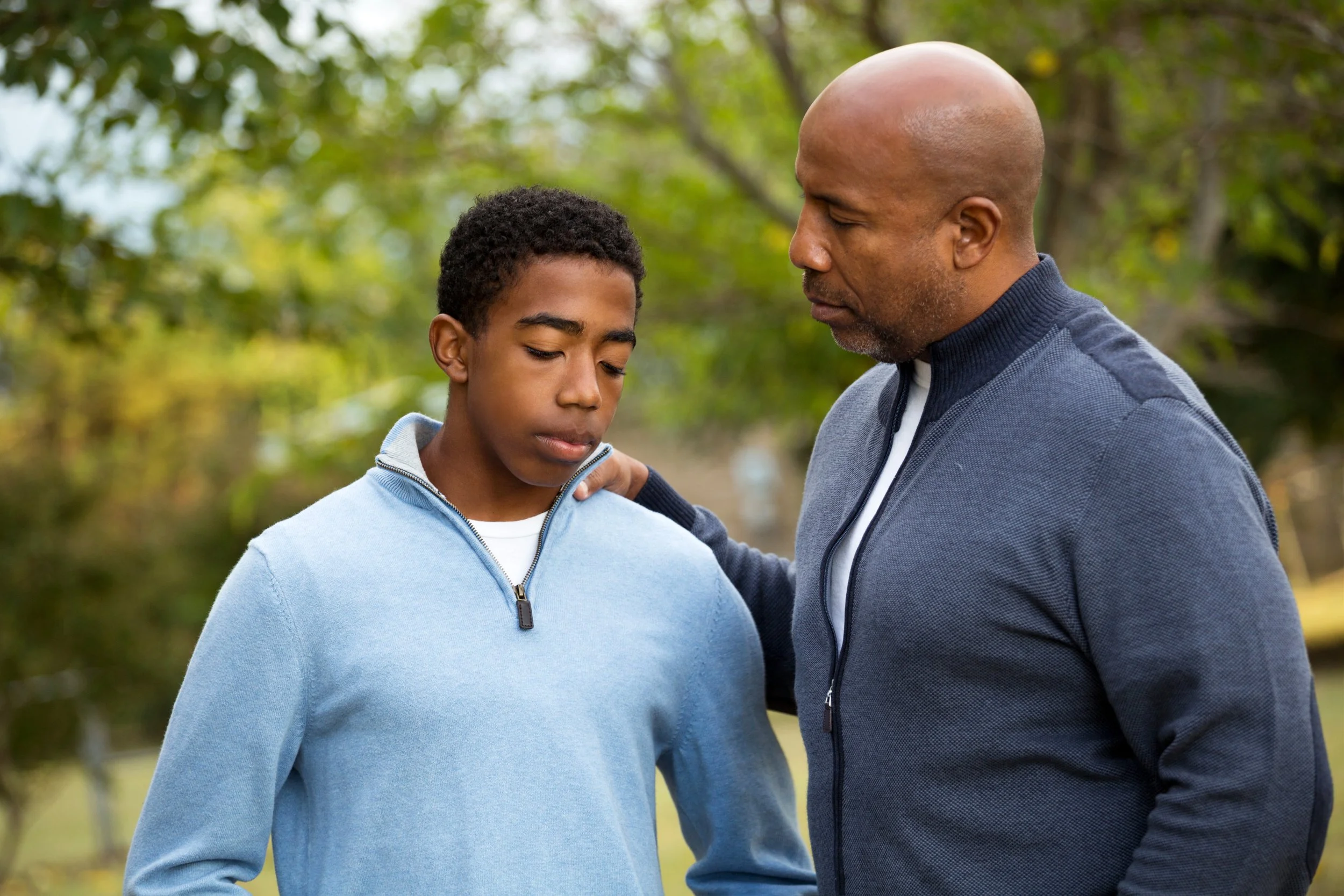3 TIPS FOR BOUNDARY SETTING WITH TEENS
Parenting is a tough and beautiful experience to be a part of. There are challenges of learning and adapting to where your child is developmentally. Part of these developmental stages are the teen years. Teens go through a shift within their lives. They begin to make changes within their lives which include mental, emotional, physical and identity changes. Due to the many changes within their lives and trying to navigate who they are, they may start to push boundaries and limits. No worries, this is absolutely normal!
As a parent, it is normal to have feelings of annoyance and frustration come up. This could be because your child isn’t the child they used to be or you’ve had a long day at work and can’t get a break from the stress or maybe you’re exhausted by the amount of energy it consumes when your teen is pushing limits and boundaries. During these teen years, your teen may skip classes, delay getting homework done and talk back. While these are important aspects in their life to regulate, teens may do this to test their own boundaries as well as your boundaries. While it is hard to not respond impulsively to these behaviors, it is important to remember that your teen is trying to figure out how they want to feel about situations as well as how they want to handle stressful and difficult situations as well. They are learning by trying different
One thing to remember or even to know is that “push back” from teens isn’t always a reflection on your parenting. Push back can mean a few different things, one being that they are trying to figure out how to set emotional boundaries. Teens can be attempting to figure out how to set these boundaries with parents when they feel like their boundaries have been crossed. They may do this by shutting the door in your face while you are trying to speak to them. It can be helpful to remember that as a human being and a parent that your teen is learning, just like you are. There are some ways you can support yourself and your teen while they are navigating boundary setting:
1. Maintaining Empathy
It can be a lot when your teen is yelling at you, ignoring you or walking away from you. It can be helpful to remind yourself that they are learning how to set emotional and personal boundaries. Although it can be challenging, it is both a gift and a challenge to be a part of your teen learning how to set those boundaries and figuring it out. The boundaries that they learn will translate to their adult life as well as will translate to boundaries with their friends, relationships and supervisors and bosses. Maintaining empathy while they are learning to navigate boundaries can be helpful in lessening your frustration and supporting them in this journey.
2. Modeling Emotional Regulation
Your teens; emotions are not yours. Your teen will want to spend more time with their friends and less time with the family, they are going to want to be in their rooms more often and will start to question your authority as a parent. It is hard to watch your teen be a teen and it is important to allow them to have their own emotions and experiences. Your teen is giving themselves permission to explore their emotions and be independent, not because they no longer love you. It is easy and normal to take their behavior and emotions personally. You can only control your reaction and have the power to walk away. This not only benefits you, but it also can demonstrate and model emotional regulation to your teen. This is a great opportunity to demonstrate emotional regulation.
3. Modeling Boundary Setting
As teens are learning and growing, boundary setting is important. As your teen is growing, you can allow them to speak their thoughts to you but if they cross a boundary you have, this would be a perfect opportunity to demonstrate boundary setting and emotional expression. An example of this could be, “I know that you’re upset that you had a hard day at school and what you said really hurt my feelings so I will give you space.” This will not only allow you to keep your boundaries, but also for you to demonstrate emotional boundaries in a manner that doesn’t hurt the other person. The more you communicate with your teen in a clear and healthy way, the more they can understand and learn to take responsibility for their actions, reactions and emotions.
This will allow them the ability to begin to set healthy boundaries while being respectful of others. As a parent, give yourself grace. You will make mistakes just as your teen will throughout this journey. This is a learning experience for you and your teen. You can always reach out for. support when you need it, you don’t have to go through this journey alone.










